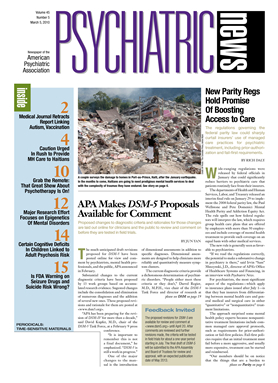Secretary of Defense Robert Gates and Admiral Mike Mullen, chair of the Joint Chiefs of Staff, told the Senate Armed Services Committee last month that Congress should repeal the “Don't Ask, Don't Tell” policy, by which members of the Armed Forces can be dismissed from the military because of their sexual orientation.
“[S]peaking for myself and myself only, it is my personal belief that allowing gays and lesbians to serve openly would be the right thing to do,” said Mullen. “No matter how I look at this issue, I cannot escape being troubled by the fact that we have in place a policy which forces young men and women to lie about who they are in order to defend their fellow citizens. For me personally, it comes down to integrity—theirs as individuals and ours as an institution. I also believe that the great young men and women of our military can and would accommodate such a change. I never underestimate their ability to adapt.”
Both Gates and Mullen said they are determined to move toward elimination of the policy in keeping with President Obama's request as expressed in his State of the Union speech in January, but they proposed a study group to examine issues associated with repealing the policy before Congress would act. The study group would issue a report in a year.
“To ensure that the department is prepared should the law be changed, and working in close consultation with Adm. Mullen, I have appointed a high-level working group within the department that will immediately begin a review of the issues associated with properly implementing a repeal of the ‘Don't Ask, Don't Tell’ policy,” Gates told the committee. “The mandate of this working group is to thoroughly, objectively, and methodically examine all aspects of this question and produce its findings and recommendations in the form of an implementation plan by the end of this calendar year.”
During the hearing, committee chair Sen. Carl Levin (D-Mich.) noted that a majority of Americans now support allowing gay and lesbian people to serve openly in the military and that other nations had enacted policies to do so.
A Washington Post poll reported on February 12 that 75 percent of Americans said they backed allowing gays and lesbians to serve openly, a substantial increase from polls when the policy began.
APA Trustees voted last December to ask Congress to repeal “Don't Ask, Don't Tell” (Psychiatric News, January 1), and at the AMA's Interim Meeting in November 2009, the House of Delegates voted with little or no opposition to advocate for repeal of the policy as well.
“Not only does ‘Don't Ask, Don't Tell’ put our service members in an ethical dilemma of whether to choose their career over necessary health care, it also puts our doctors in the ethical dilemma of deciding whether to do no harm and not ‘out’ a service member or to forge a legal document that places ourselves at risk of losing our license,” said psychiatrist Jennifer Chaffin, M.D., chair of the AMA's Gay, Lesbian, and Bisexual Advisory Committee, during last year's meeting (Psychiatric News, December 18, 2009).
